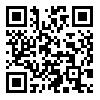Volume 15, Issue 2 (2024 2024)
JIM 2024, 15(2): 157-176 |
Back to browse issues page
Download citation:
BibTeX | RIS | EndNote | Medlars | ProCite | Reference Manager | RefWorks
Send citation to:



BibTeX | RIS | EndNote | Medlars | ProCite | Reference Manager | RefWorks
Send citation to:
karimpasandi K. (2024). An Analysis of Leibniz's Philosophy of Theology in Rumi's Mysticism. JIM. 15(2), 157-176. doi:https://doi.org/10.22034/15.30.157
URL: http://erfanmag.ir/article-1-1431-en.html
URL: http://erfanmag.ir/article-1-1431-en.html
. chalous branch. islamic azad
Abstract: (2403 Views)
One of the fundamental questions of man is the question of what and the existence of God, to which the philosophical, theological and mystical schools answer according to their own method. In this way, by reading the epistemological views of Rumi and the philosophical views of Leibniz, it can be seen that behind the phenomena and manifestations of the world of creation, there is an infinite, eternal, single, conscious and complete existence. Both thinkers call this infinite being God. Hence, God is considered the center and axis of the universe of creation, the actual cause and the ultimate cause of all beings and the universe, to which the shadowy existence of beings owes its centrality. This article deals with the analytical-comparative method of analyzing the traces of Leibniz's philosophy of theology in Rumi's thought. The result of the research indicates the fusion of Western philosophy and Eastern mysticism in the minds and languages of these two thinkers who lived in two different cultures and languages; In such a way that the manifestations of the universe and man are considered as a mirror in which God is reflected.
Type of Study: Research |
Subject:
عرفان
Received: 2022/05/1 | Accepted: 2022/05/30 | Published: 2024/04/30
Received: 2022/05/1 | Accepted: 2022/05/30 | Published: 2024/04/30
Send email to the article author
| Rights and permissions | |
 |
This work is licensed under a Creative Commons Attribution-NonCommercial 4.0 International License. |



